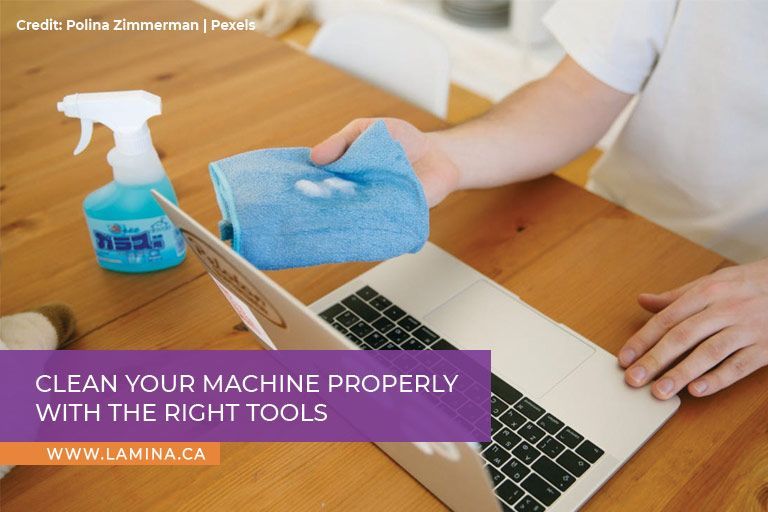For many, the shift to remote work has been a game-changer. Gone are the days of long commutes and rigid office schedules. Now, with a reliable internet connection and the right tools, your workspace can be anywhere. But in this new landscape, one crucial element often gets overlooked: your computer.
However, unlike in a traditional office setting, where IT departments handle routine maintenance and troubleshooting, remote workers are solely responsible for keeping their computers running smoothly. A malfunctioning computer can mean missed deadlines, lost productivity, and a major disruption to your workflow.
While
borrowing money online can help you fund immediate repairs or replacements, there are also a few proactive steps you can take to make sure your computer remains a reliable partner.
How to Care for Your Computer
Just like a cluttered workspace can affect your productivity, a dusty and dirty computer can lead to overheating and potential damage. Develop a regular cleaning routine that includes:
Use a compressed air can to remove dust build-up from vents and keyboards. Be gentle and avoid using liquids directly on the computer.
For the keyboard, screen, and other surfaces, use a microfibre cloth slightly dampened with water. Avoid harsh chemicals or abrasive cleaners.
- Internal Cleaning (For Tech-Savvy Users)
For more advanced users, consider opening the computer case (if possible) and carefully removing dust from internal components using compressed air.
While regular cleaning can be tedious, it significantly contributes to your computer's lifespan and overall performance.
- Organize and Maintain Your Software
Think of your computer's software as a bustling city. Applications are the buildings, files are the residents, and the operating system is the infrastructure. For optimal performance, organization is key.
A cluttered desktop is not only visually unappealing, but it can also slow down loading times. Organize your files into clear folders to keep things neat and easily findable.
- Uninstall Unused Applications
Unused applications can take up valuable storage space and even introduce security vulnerabilities. Regularly review your installed apps and remove anything you no longer use.
Out-of-date software is a prime target for hackers and malware, putting your data and privacy at risk. Software updates often include security patches, bug fixes, and performance improvements. Set your applications and operating system to update automatically whenever possible.
- Keep Your System Safe and Secure
Cybersecurity threats are a constant reality in the digital world. Remote workers are particularly vulnerable as they may not have the same level of security as in a corporate office environment.
Your computer's built-in firewall is like a digital gatekeeper. Make sure it's always enabled to filter incoming and outgoing traffic, safeguarding your system against malware and unauthorized access.
- Install a Reliable Antivirus
Malware, viruses, and spyware are ever-present threats in the online world. Invest in a reputable antivirus program and keep it updated. Run regular scans to identify and remove any potential threats lurking on your computer.
Strong passwords are your first line of defense against unauthorized access. Use a combination of upper and lowercase letters, numbers, and symbols, and avoid using easily guessable passwords like birthdays or pet names. Consider a password manager to help you create and securely store complex passwords for all your accounts.
Losing important work files due to a hardware failure or malware attack can be devastating. Having a backup plan in place provides peace of mind and ensures you can recover lost files quickly.
This is an affordable option for local backups. Regularly back up your important files to an external hard drive.
Cloud storage services like Google Drive or Dropbox offer a convenient and secure way to backup your data remotely.
Don't rely on memory! Schedule automatic backups to ensure your data is protected even if you forget.
- Be Careful When Downloading Software
Only download software from trusted sources. Free downloads from unknown websites can be a breeding ground for malware. Stick to official app stores or software developer websites for safe downloads.
- Beware of Phishing Attacks
Phishing emails are designed to trick you into revealing sensitive information. Be cautious of unsolicited emails, and never click on suspicious links or attachments.
- Invest in a Surge Protector
Voltage fluctuations can damage your computer. Use a surge protector to safeguard your equipment against unexpected power surges. This is a small investment that can prevent a major headache (and potentially expensive repairs) down the line.
Don't smother your laptop. Working on soft surfaces like beds or couches can block ventilation contributing to overheating. Use a hard, flat surface, such as a desk or laptop stand, to allow for proper airflow.
Financial Fitness for Your Tech: Plan for Unexpected Costs
While proactive maintenance can prevent many issues, accidents happen. A sudden power surge or accidental liquid spill can leave you scrambling for funds to repair or replace your computer.







